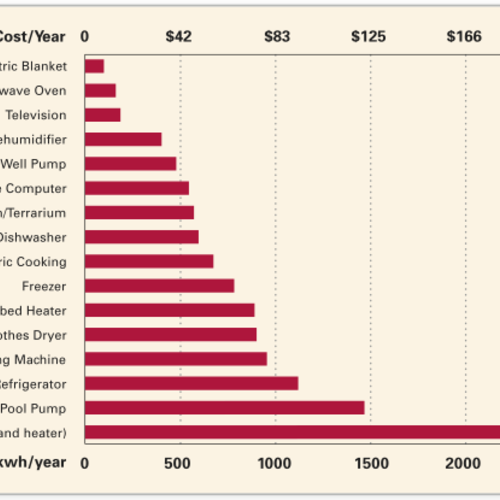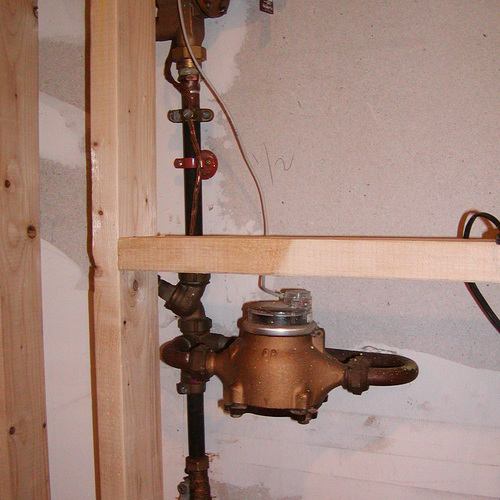When we talk about the environment and environmentally responsible building, it’s almost always energy that takes the spotlight, with water pretty far down the list. But it’s not hard to see just how much of a back seat driver water can be:
• We don’t have any substitutes for clean water and we use a ton of it every day. Actually, more like a ton and a half; the typical US household uses 400 gallons of water a day and that’s about 3200 pounds! (Source: EPA WaterSense)
• Even in areas of the country with long histories of more than 40 inches of precipitation a year, we can be just a few short years away from not enough water to support our needs. Atlanta averages more than 50 inches of rain a year but it was just a few short years ago that Atlanta was experiencing a severe prolonged drought. (Source: US Drought Monitor)
• In many areas of our country, the connections between water and energy are deep—in the state of California, more than one-sixth of all energy consumed is related to meeting water demands. Nationwide, about 80% of municipal water processing costs are for electricity. (Source: Center for Sustainable Systems)
And water is essential to more than just environmental quality; it is increasingly becoming a driver economically as well:
• Water and sewer infrastructure costs: EPA reports that updating our water and sewer infrastructure could cost nearly $500 billion over the next 20 years. (Source: EPA)
• Impact fees: In 2009, the impact fees for a water hook-up alone (not including sewer) averaged $3,582 in Florida; $5,792 in Virginia; $6,879 in Colorado. And forget about beautiful Oro Valley in Arizona—hook-up fees for new homes there are a whopping $27,381 per lot. (Source: National Impact Fee Survey: 2009)
• Water rates: In general, we have pretty low water rates, but that’s not true across-the-board. Typical monthly water bills for both Seattle and Atlanta are well over $70, and in Santa Fe are over $120. (Source: The Price of Water: A Comparison of Water Rates, Usage in 30 US Cities)
In this column, Alex and I will be covering everything from products to practice to policy. That means key information on the most advanced water-conserving toilets, how to avoid water waste with hot-water distribution, better ways to manage stormwater, and that complicated issue of water rights, particularly in the West.
Alex is the executive editor of Environmental Buildings News (EBN) and the founder of BuildingGreen. You can keep up with his various musings and articles by following him on Twitter. In 2008 for the first time ever, EBN had a special year-long focus on a particular—we addressed water. You can access his three feature articles on reducing water demand, alternative water supplies, and water conservation policies at www.buildinggreen.com/water.
I’m director of our residential program at BuildingGreen. Along with many years of work in the building science field, I’ve been very involved with residential water efficiency issues. And even in the fairly damp state of Vermont, I’m one of those people who takes “military showers” (turning off the flow when soaping up to save water)!
Alex and I promise to do our best to keep our reporting anything but “dry,” covering water from both the front and the back seat!
Weekly Newsletter
Get building science and energy efficiency advice, plus special offers, in your inbox.
















5 Comments
Good idea guys.
Thanks for bringing some attention to water issues.
There seems to be a perception that the hydrological cycle will ensure our continuing water needs despite the industrial and agricultural processes that undermine that natural recycling process.
Water, like energy, is not in short supply in absolute terms. However useable clean water, like affordable clean energy, is in short supply.
Interestingly, as you stated, most of our attention is focused on energy issues. Somewhat ironically though, without water we have almost no energy.
I think these issues are under-appreciated for the most part.
Awesome
Hey guys! I am so glad to see that you will be taking on this critical issue for GBA! I have been arguing that the water issue far exceeds the energy debate. Should I be optimistic and hope that someday soon GBA will take on the underlying issues of social justice and human health in ernest?
Keep up the great work!
Peter the issues that you
Peter the issues that you raise are essential in the education of the general public toward the conservation of our most precious resource. Most people take it for granted that when they turn on the tap clean water appears. In general most do not think of their wasteful habits regarding water, because we have grown up with an abundance of clean potable water. Those that live in areas of the world where water is scarce , and filled with impurities and disease, possess a more pragmatic appreciation for clean water. They live everyday of their lives practicing water conservation. Our disposable society needs to become proactive and aware in the realization that water is becoming more scarce with each passing season, and that our supply of clean potable water is threatened on many levels. The water supply infrastructure is a main target for terrorism. Our reservoirs and aquifers are catch basins for all of the toxic pollution in our living environment. The aquifers are being pumped dry in different areas of the world by corporations that make massive profits from bottled water, while ignoring their destruction of the public water supply. The connection that you describe between water and energy usage is something that we all need to understand and be aware of. They are the two most relevant and important issues that we face in the future survival of our planet and all living species. Thanks Peter, Alex, and GBA for all of your great work.
Thanks for your comments!
Great to hear of your interests. As Alex and begin to cover various water issues, please let us know if there is one of particular interest to you, and we will do our best to respond.
Peter, Water Wise Guy
Short read on water/energy relationships
http://www.energybulletin.net/node/1642
Log in or create an account to post a comment.
Sign up Log in